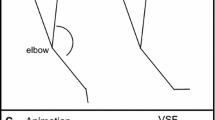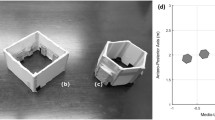Abstract.
The research to be reported examines the concept of efficiency, defined as the relation of metabolic energy expended to mechanical work done. The development of movement coordination was investigated in the context of the hypothesis that an increase in coordination would be accompanied by a parallel reduction in overall energy expenditure, relative to the increase in energy expenditure demanded by improvements in work output. The task involved learning to make cyclical, slalom-like, ski movements on a ski apparatus. Development of coordination was indexed by changes in the timing of forcing while on-line measurements of oxygen consumption were used as indices of energy expenditure. Six female volunteers served as subjects in nine training sessions. The change in the coordination pattern, between the subject and the apparatus, as indexed by the development of the phase lag, was paralleled by an improvement in efficiency. It was concluded that learning the skill used in this study involves a search by the system for perception-action couplings (phase relations in the present study) that require minimal energy expenditure.
Similar content being viewed by others
Author information
Authors and Affiliations
Additional information
Received: 22 September 1998 / Accepted in revised form: 20 April 1999
Rights and permissions
About this article
Cite this article
Almåsbakk, B., Whiting, H. & Helgerud, J. The efficient learner. Biol Cybern 84, 75–83 (2001). https://doi.org/10.1007/s004229900075
Issue Date:
DOI: https://doi.org/10.1007/s004229900075




